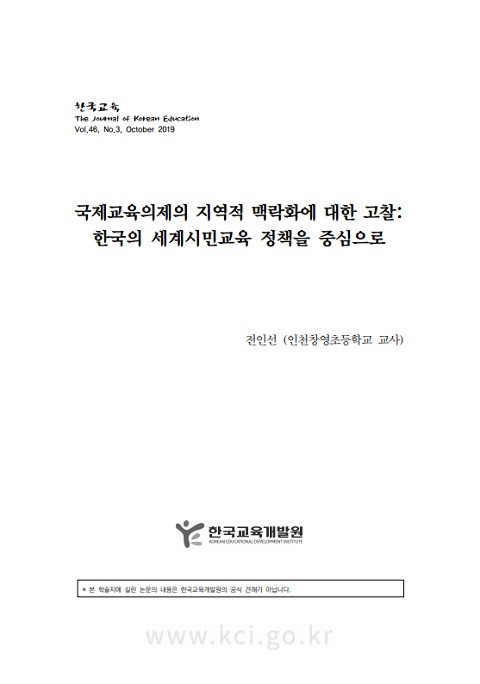
GCED Basic Search Form
Quick Search
Вы здесь
Ресурсы

This study aims to provide a concrete discussion on contextualization of global education agenda with the case of Global Citizenship Education(GCED) policies in South Korea.
Design/Methodology: With a theoretical approach based on neoinstitutionalism, this study investigates influential factors in determining the direction and key words of GCED policies in policy-making process. Policy documents of Ministry of Education, the local education authority of Seoul city, Kyeonggi-province, Incheon city and the Asia-Pacific Centre of Education for International Understanding of UNESCO, and the speeches of key stakeholders such as presidents, ministers and superintendents from 2014 to April 2019 are analyzed by using KHcoder for text mining and mapping. Semi-structured interviews are conducted with experts to supplement the text analysis.
Findings/Result: The result shows that the influence of key stakeholders on directing GCED policies is significant. By and large, GCED is re-defined by purpose in the socio-political context of South Korea, which contributes to the expansion of GCED but also results in inconsistency and fragmentation.
Value: This study shows a limit of the top-down approach to GCED policy decisions, and the necessity to allow more bottom-up proposals, transparency of the policy-making process, the participation of diverse groups and ongoing discussions focusing on the process of contextualization for future GCED.
